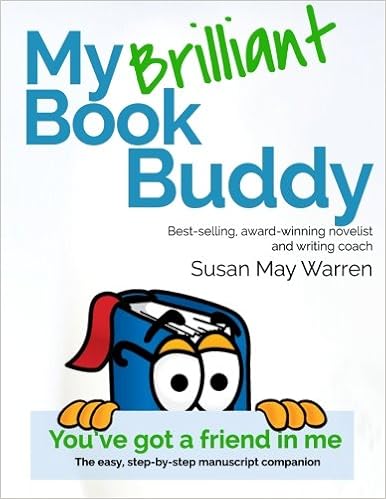Today I'm delighted to introduce my dear writing friend Beth Vogt to all the Alley Cats. She writes wonderful romance with strong women fiction threads. She also wins awards :-) If you haven't read her yet, consider this your personal invitation. Without further ado, here's Beth!
 Beth, can you tell us what's your favorite writer fuel? I’m a tea
lover, and my favorite tea is Bigelow’s Constant Comment. I drink it hot in the
fall, winter and spring – it snows in the spring in Colorado – and iced in the
summer. I also like to snack while I write, so popcorn or gluten-free pretzels.
Or grapes. Grapes are always good!
Beth, can you tell us what's your favorite writer fuel? I’m a tea
lover, and my favorite tea is Bigelow’s Constant Comment. I drink it hot in the
fall, winter and spring – it snows in the spring in Colorado – and iced in the
summer. I also like to snack while I write, so popcorn or gluten-free pretzels.
Or grapes. Grapes are always good!
Another thing that fuels me as a writer?
Having large blocks of uninterrupted time to write. This is rare, but it’s so,
so productive.
I love Constant Comment, too. What's
the one thing you wish you had learned early in your writing career?
I wish I’d been a more ruthless rewriter. The more books the write, the more
I’m willing to tear my books apart to find the best story, the deeper story.
What's
your favorite book of all time? Other than the Bible.
Ah! I used to have trouble with this question! But then I realized my favorite
book of all time is the first book I ever read because that book was the key to
all the other books I ever read. So yes, a first-reader is my favorite book – and
I relived that joy every time I taught one of my children to read. I just
bought a set of Usborne First Readers for my oldest GRANDgirl. (Sssh! It’s a
Christmas gift!)
Do
you have a favorite writing book? What is it? I
use The Book Buddy whenever I start
plotting a new book. The Book Buddy
is a work-text developed by author Susan May Warren. It helps you develop your
characters, your story – the obstacles, the spiritual storyline – all the key
elements needed in a novel. When I’m finished working through The Book Buddy,
I’m ready to start fast drafting my novel. I love introducing other writers to the
book because it’s so helpful to me.
I've used it too, though not all the way through yet. Do
you have a favorite writing tool? What is that?
I posted two medium-sized white boards on the back of my wooden doors in my
office. I’ve used those boards in a variety of ways. Sometimes I use
multicolored dry erase markers and brainstorm characters or plot points.
Sometimes I use neon Post-It Notes and chart out my storyline. Once I printed
out my synopsis and cut it apart – separating each scene – and then used it to
post my story outline on the white boards. I referred back to it as I fast
drafted and it kept me focused – no wondering “What do I write next?”
 What
surprised you most while writing this book? I
surprised myself when, after turning Almost Like Being in Love into my editor, I called her up two weeks later and
suggested a major change to the story. She agreed to the change and so I
started rewriting the book. Well, when you change one virtual domino in a
story, the others start falling. So, by the time I was finished, I’d rewritten
a huge part of the story.
What
surprised you most while writing this book? I
surprised myself when, after turning Almost Like Being in Love into my editor, I called her up two weeks later and
suggested a major change to the story. She agreed to the change and so I
started rewriting the book. Well, when you change one virtual domino in a
story, the others start falling. So, by the time I was finished, I’d rewritten
a huge part of the story.
At
what point in the book did you hate it? And at what point in the book did you
go “oh my gosh I really can write?” I always struggle with my book in the
middle of writing it. Most authors do. I start off loving the idea, loving the
process, and then I hit the middle and think, “Why am I writing this story? I
hate everything about it!” That’s when I FaceTime with my good friend author
Rachel Hauck and she reminds me of everything I’ve forgotten. My Story Question.
The “why” for my characters. When did I think, “Oh my gosh, I can really
write?” When I called up my editor and suggested the change and she agreed with
me. I knew she trusted my instincts with the story and that she believed I
could pull it off. And when I was done with the rewrite, I knew the story was
stronger, better.
Thanks so much for joining us, Beth!
____________________








































